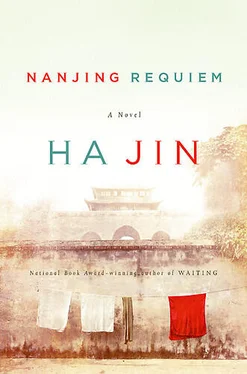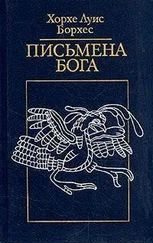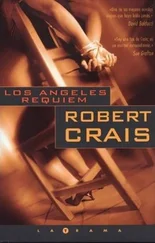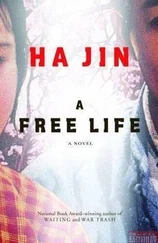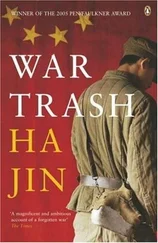“What a pity. I’ve never tasted a mango,” said Luhai, who got a paisley tie.
Minnie smiled and told him, “I’ll remember to get you some one of these days.”
I received a sweater and also a flowered neckerchief for Liya and a pack of sesame toffee for Fanfan. Mrs. Dennison had written the recipients’ names on most of the gifts, so it was easy for us to distribute them. The old president was always precise about everything, especially about small favors.
Big Liu raised a double-bang firecracker and said, “Good heavens, who dares to set off this rascal nowadays? The Japanese would come and search for firearms for sure.”
That cracked people up. Everyone was happy, and the room grew noisy and hazy with tobacco smoke.
Minnie read Mrs. Dennison’s letter to us. The former president feared that the presents might arrive late, so we should take them as gifts for both Christmas and the Spring Festival, which would fall on February 19, still a month away. These presents embodied her thanks to every one of us who had worked so hard at Jinling. She also said she would join us soon.
FOUR. The Grief Everlasting
MRS. DENNISON CAME BACK to Jinling in mid-March 1939. With her was Aifeng Yang, who served as her assistant and had taught extensively at the college, including horticulture, children’s education, and domestic hygiene. Minnie gave them a welcome-home party, attended by all the faculty and staff. People were excited to see Mrs. Dennison again.
Officially the old woman was just an adviser at our college, but she thought of the college as hers. Already sixty-nine, she was healthy and in good shape despite her grizzled flaxen hair and a little stoop due to chronic back pain. She looked much thinner than before. When she spoke to you at length, she’d gesticulate unceasingly, her longish face would begin adopting an expression between smiling and crying, and her tawny eyes would turn fiery. Yet most of the time she looked miserable, as if something unfortunate had just happened to her. She told us that many wealthy families in the States that used to donate to Jinling had become reluctant to give on account of our school’s uncertain future, so she was resolved to restore the college and to attract American donations again.
The next morning I took her around campus. We went to the poultry center, where Rulian enthusiastically greeted Mrs. Dennison, who had once taught her. The old woman was satisfied to see that Rulian still conducted experiments and to hear that some hens could lay two eggs a day. Imagine what an extraordinary contribution this project would make to China’s larder if a third of the hens in our country were that productive! Suddenly a chicken broke out cackling. “That must be Matchmaker,” Rulian said, rolling her almond-shaped eyes, and went into the shack of coops. She had named every bird in her charge. Matchmaker, a black pullet, often brought other young hens to roosters.
In a flash Rulian came back with a huge brown egg. “See, this hen often lays a double-yolk thing.” She showed it to Mrs. Dennison.
The old woman held it with both hands. “Oh dear, it’s still warm.”
“You can have it,” Rulian said.
“Are you sure?”
“Absolutely, a double-yolk egg can’t hatch.”
Mrs. Dennison took out a linen handkerchief and wrapped it around the egg. Rulian found a pastry box and handed it to her. “This is good,” the old woman said, putting the bundle into the small paperboard container.
We went to the gardens in the back of campus, where the damage left by the refugees was still visible, although the trees were all leafing and some shrubs were fluffy with wet blossoms. After looking through various parts of the college, the old woman was not pleased, except with the two-hundred-yard macadam road that ran through the expanse between the front gate and the quadrangle — Minnie had gotten it paved for only one-third of the regular price.
“This still looks like a refugee camp,” Mrs. Dennison said, furrowing her brow.
I didn’t reply, knowing she must dislike the large number of poor students in the Homecraft School. We were standing on the short bridge over the creek that meandered from the pond behind the Library Building to the pond beside Ninghai Road, near the Faculty Residence. Below us a flock of white ducks paddled by, all in silence. In the bushes nearby, orioles were twittering merrily as if crazed with spring joy, but in the south a squadron of bombers was droning, now visible and now lost in the clouds billowing above a wooded hill. Some city, such as Ningbo or Fuzhou, would be bombed today.
“We must bring the college back,” Mrs. Dennison said, and shook her head. Her face was slightly gray while her eyes glazed with pain and anger.
“Yes, we must,” I echoed.
“Damn the Japanese — they destroyed everything.”
“Do you think they’ll let us restore the college, given their anti-Christian policy?”
She gave a deep sigh. “I don’t care. I just want Jinling to be what it was.”
Minnie had assigned Mrs. Dennison the large provost’s office. For the time being, the old woman and Aifeng lived at the South Hill Residence, in a five-room apartment on the first floor. They both liked the arrangement. Mrs. Dennison didn’t teach, but Aifeng started a course in child guidance in the Homecraft School. Many students who were mothers wondered how this unmarried woman with a lithe figure, a flat belly, and smiling eyes could teach them childcare and child welfare, but after a few classes they were all eager to listen to her, amazed that she knew so much about the subject. I liked Aifeng, who was easygoing and didn’t gossip.
Minnie sent Alice to the U.S. embassy to fetch Mrs. Dennison’s wedding silver. The large portmanteau, recovered by a Russian diver from the sunken Panay , was misshapen and the silver pieces were tarnished, but the old woman wasn’t upset and merely said, “I’ll sell the whole set if someone offers a good price. Our college needs funds anyway.”
I admired her largesse. Mrs. Dennison praised Minnie for having our college’s most important documents duplicated before sending them away, particularly those that were ruined in the water-damaged portmanteau. I was glad that the two women seemed to be getting along.
Then, a week later, the old woman came down with an illness no doctor could diagnose. I was worried that she might have had a stroke, for she suffered some kind of emotional incontinence: she was unable to control her tears and laughter even in front of visitors. According to Aifeng, Mrs. Dennison was heartbroken about the condition of our college, and when alone, she couldn’t help sighing and often wept. She confessed to Aifeng, “Even when my husband died, I didn’t feel so sad. It’s like my life is over.” She lay in bed most of the time and took her meals in her bedroom. We all knew she had always wanted Jinling to be the number one women’s college in China. From the outset she had emphasized, “We aspire to become China’s Wellesley.” That had pleased Madame Chiang, who had graduated from Wellesley, so much that the first lady, together with her two sisters and in memory of their mother, donated the funds for a dormitory building and the Practice Hall, both of which were built under Minnie’s supervision.
Meanwhile, Minnie received word from Plumer Mills that the six IRC men might be released from prison soon, though there was no progress in Yulan’s case. In his letter Plumer wrote that the madwoman was classified as a mental patient, so the Japanese would not consider releasing her on the basis that she might disrupt public order. Plumer said farewell to us, as he was about to leave for the States.
Читать дальше
